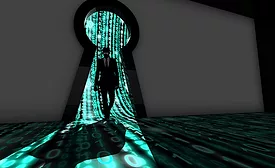Home » security talent gap
Articles Tagged with ''security talent gap''
Insider Tips for Building Your Cybersecurity Team
Don’t allow your biggest security vulnerability to be your lack of cybersecurity talent.
March 1, 2017
Sign-up to receive top management & result-driven techniques in the industry.
Join over 20,000+ industry leaders who receive our premium content.
SIGN UP TODAY!Copyright ©2026. All Rights Reserved BNP Media.
Design, CMS, Hosting & Web Development :: ePublishing









